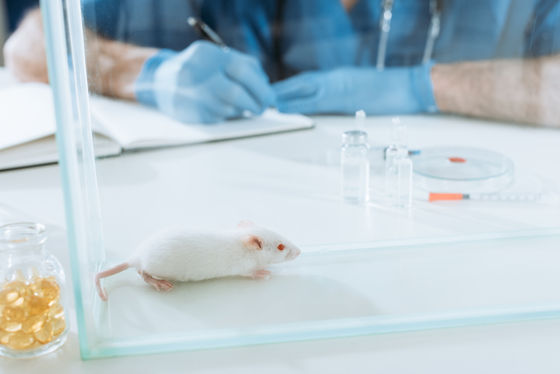'Reverse vaccines' show potential to treat and eradicate autoimmune diseases such as multiple sclerosis

In contrast to vaccines that teach the immune system 'what to attack,' a technology that has the potential to treat autoimmune diseases by telling the immune system 'what not to attack' has been published in a peer-reviewed scientific journal. Published in Nature Biomedical Engineering.
Synthetically glycosylated antigens for the antigen-specific suppression of established immune responses | Nature Biomedical Engineering
“Inverse vaccine” shows potential to treat multiple sclerosis and other autoimmune diseases | Pritzker School of Molecular Engineering | The University of Chicago
https://pme.uchicago.edu/news/inverse-vaccine-shows-potential-treat-multiple-sclerosis-and-other-autoimmune-diseases
In the body of a person with a normal immune system, immune cells called T cells identify and attack antigens present on the surface of pathogens and malignant cells in order to protect the body from invaders such as viruses and cancer. However, in patients with autoimmune diseases, T cells target self-antigens, molecules found on normal cells, exposing healthy cells to immune attack.
One example is multiple sclerosis, in which T cells attack myelin, the protective membrane of neurons, resulting in various neurological disorders. In addition, many people today suffer from autoimmune diseases, such as type 1 diabetes, in which the cells that produce insulin are destroyed by the immune system, and rheumatoid arthritis, in which joint tissues are attacked.

On the other hand, the liver, which must filter blood and distinguish dangerous foreign antigens such as bacteria from self-antigens derived from food and body cells, presents harmless antigens to T cells to tell them that they are not the target of attack. There is a function called
Previous research by Jeffrey A. Havel of the University of Chicago's Pritzker School of Molecular Engineering showed that tagging a molecule with a sugar called N-acetylgalactosamine (pGal) sends the molecule to the liver and certifies it as safe. I had figured it out.
Furthermore, in this research, Havel and his colleagues conducted an experiment in which pGal was combined with myelin protein from mice that had developed multiple sclerosis. As a result, they were able to stop the immune system from attacking myelin. Havel said experiments have shown that it can be treated even after the inflammation has already progressed.

Current treatments for autoimmune diseases use drugs that suppress the immune system, but they also block the immune response needed to fight infections, which comes with the risk of side effects. On the other hand, the ``reverse vaccine'' developed in this research suppresses immunity only to specific antigens, so it is expected to be a treatment with fewer side effects.
The ``glycosylated antigen therapeutic drug'' based on this research has been shown to be safe in clinical trials for patients with celiac disease, which is caused by gluten contained in wheat and barley, and is currently being tested for multiple sclerosis. Phase I safety trials are also underway.
'Although there is no clinically approved reverse vaccine yet, we are very excited to move this technology forward,' Hubbell said.
Related Posts:
in Science, Posted by log1l_ks







